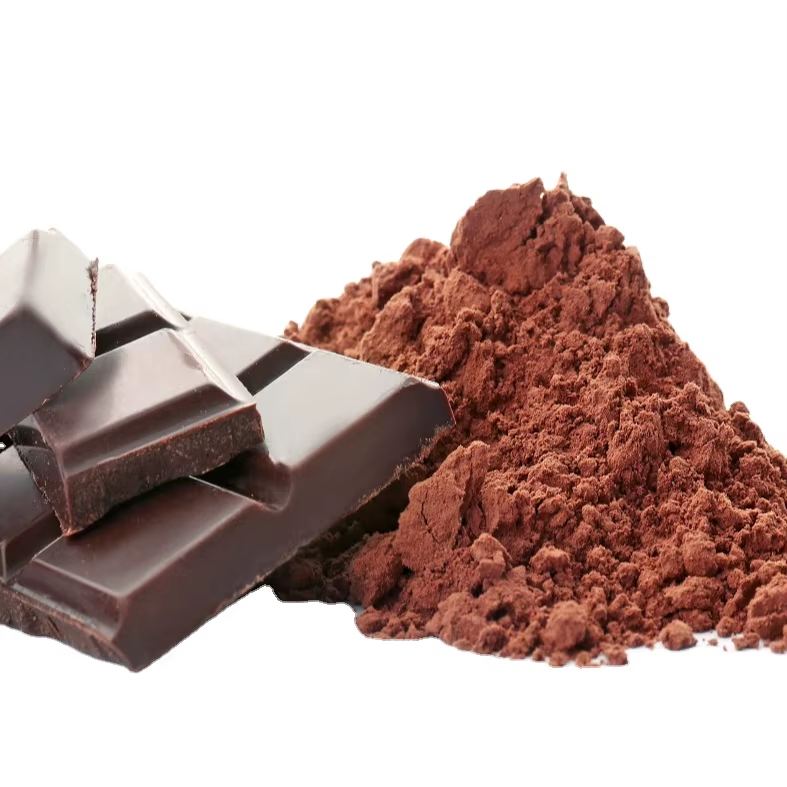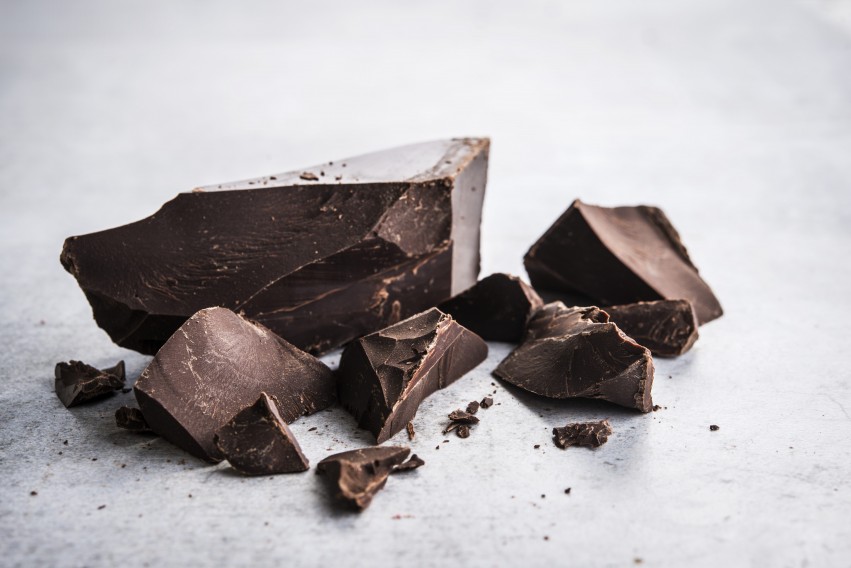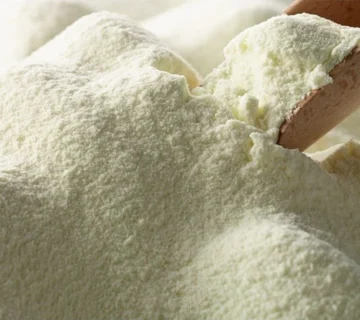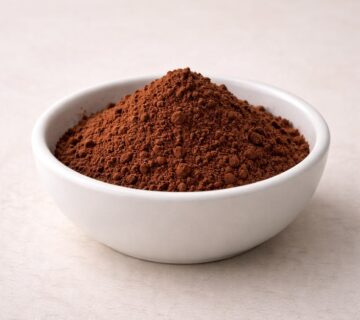For industrial chocolate, bakery, and confectionery manufacturers in Algeria, cocoa powder is far more than just a simple ingredient—it serves as the backbone of flavor, texture, aroma, and overall product consistency. The quality and characteristics of the cocoa powder you choose can directly impact your finished product’s taste profile, appearance, and shelf life. A subtle variation in fat content, particle size, or alkalization can alter mixing behavior, dough consistency, or chocolate conching, potentially affecting the efficiency of your production lines.
Selecting the right supplier is therefore not just a procurement task—it is a strategic decision that influences operational costs, production timelines, and the ultimate satisfaction of your customers. Inconsistent cocoa powder can lead to production delays, rework, and material waste, all of which negatively impact profitability and brand reputation. Conversely, a reliable supplier ensures batch-to-batch consistency, predictable behavior in industrial machinery, and dependable delivery schedules that support large-scale production demands.
At MT Royal, we’ve built strong partnerships with manufacturing facilities across Algeria, providing access to a wide spectrum of cocoa powder brands. These include both locally sourced options for cost-effective production and premium European brands like Latamarko, which are renowned for their industrial-grade reliability, precision, and superior quality control. Through these partnerships, we help factories achieve a balance between cost-efficiency and product excellence, enabling them to meet both standard and high-end production goals.
This comprehensive guide is designed to walk you through everything you need to know about sourcing cocoa powder in Algeria—from understanding the different types and technical specifications to navigating supplier selection, quality assurance, and storage considerations. You’ll gain practical insights into optimizing production lines, reducing waste, and achieving consistent product quality, backed by real-world experience from industrial operations. Whether you are a factory manager, production supervisor, or procurement officer, this guide will provide you with actionable strategies and expert knowledge to make informed, confident decisions about your cocoa powder sourcing.
By the end of this guide, you’ll not only understand the critical factors that define high-quality cocoa powder but also how partnering with a trusted supplier like MT Royal can streamline your operations, improve efficiency, and enhance the overall quality of your products—helping your business stay competitive in Algeria’s growing confectionery and bakery market.
Understanding Cocoa Powder: The Industrial Perspective
What Is Cocoa Powder?
Cocoa powder is the dry powder derived from cocoa solids, obtained after most cocoa butter is removed from roasted cocoa beans. Key industrial properties include:
- Color: Ranges from light brown (natural) to dark brown (alkalized)
- Flavor intensity: Mild to strong chocolate notes
- Fat content: Typically 10–24%, critical for mixing and texture
- Solubility: Essential for beverages, fillings, and processed chocolate
Types of Cocoa Powder
Industrial applications mainly use two types:
- Natural Cocoa Powder: Acidic, strong chocolate flavor; used in baked goods with chemical leavening
- Alkalized (Dutch-Processed) Cocoa Powder: Neutral pH, smooth taste, consistent color; ideal for premium chocolate production
Both types are widely available in Algeria, but manufacturers must prioritize batch consistency and functional properties for large-scale production.
The Strategic Value of a Reliable Supplier
Impact on Production Efficiency
A cocoa powder supplier affects:
- Batch viscosity during mixing
- Texture uniformity in chocolate and baked goods
- Flow and processing behavior on industrial lines
Inconsistent cocoa powder can cause line stoppages, rework, and waste, increasing operational costs.
Cost Management and Bulk Sourcing
Working with a trusted supplier like MT Royal ensures competitive pricing without compromising quality. While local options are cost-effective, premium brands like Latamarko offer consistent quality, reducing waste and improving efficiency in high-end products.
Regulatory Compliance
Industrial-grade cocoa powder suppliers provide:
- ISO 22000 or HACCP certifications
- Batch analysis certificates
- Traceability for audits and quality assurance
This is crucial for factories producing export-quality confectionery or chocolate products.
Industrial Advantages of Premium Cocoa Powder
1. Consistency in Flavor and Color
Premium cocoa powders maintain uniform flavor intensity and color, crucial for branded products and mass production lines.
2. Optimized Processing
- Predictable mixing and conching times
- Reduced line stoppages due to clumping or inconsistent fat content
- Easier integration into fillings, beverages, and doughs
3. Flexibility Across Applications
Premium powders work for:
- Chocolate bars and pralines
- Bakery products like cakes and cookies
- Beverage mixes for industrial use
- Confectionery fillings and coatings
4. Improved Shelf Life
High-quality cocoa powders ensure stable flavor and color, minimizing bloom and deterioration in chocolate products.
Common Pitfalls in Cocoa Powder Procurement
Price-Only Decision Making
Focusing solely on price can result in:
- Inconsistent fat content
- Variations in solubility and alkalization
- Production delays or defective batches
Supplier Verification Gaps
Always confirm:
- Batch-to-batch consistency
- Origin of cocoa beans
- Quality certifications and compliance
Storage and Handling Challenges
Cocoa powder is hygroscopic, meaning it can absorb moisture and:
- Clump or cake
- Ferment if improperly stored
- Lose flavor or color integrity
Proper storage is essential for industrial efficiency.
Step-by-Step Guide for Sourcing Cocoa Powder in Algeria
Step 1: Define Production Needs
- Cocoa type (natural vs alkalized)
- Fat content and solubility
- Intended product application (chocolate, bakery, beverages)
Step 2: Evaluate Suppliers
- Experience with industrial-scale operations
- Certifications and quality documentation
- Lead times and delivery reliability
Step 3: Pilot Testing
- Test small batches for mixing behavior, flavor, and texture
- Verify compatibility with your recipes and machinery
Step 4: Cost and Inventory Analysis
- Bulk pricing vs. smaller orders
- Storage logistics and cost implications
- Evaluate premium options like Latamarko for critical product lines
Step 5: Implement Storage Protocols
- Cool, dry storage environment
- Moisture-proof packaging
- Stock rotation to maintain freshness
Step 6: Monitor Supplier Performance
- Track quality metrics
- Evaluate production efficiency and waste reduction
- Adjust sourcing strategy when necessary
Large-Scale Production Considerations
- Product Segmentation: Use cost-effective local cocoa powder for standard products and premium European cocoa for high-end lines
- Environmental Controls: Temperature and humidity stability is key to prevent clumping and flavor degradation
- Machinery Compatibility: Ensure solubility and fat content match production line requirements
Real-World Example: Algerian Confectionery Optimization
A large Algerian confectionery manufacturer experienced inconsistent chocolate fillings leading to production delays. MT Royal intervened by:
- Supplying Latamarko premium alkalized cocoa for high-end products
- Using trusted local bulk cocoa powder for standard items
- Training staff on proper storage and handling
Outcome: Consistent batch quality, fewer line stoppages, and reduced waste.
Comparison: Local Bulk vs. Premium European Cocoa Powder
| Feature | Local Bulk Cocoa | Premium European (Latamarko) |
|---|---|---|
| Cost | Lower | Higher |
| Flavor Consistency | Moderate | Superior |
| Fat Content | Variable | Controlled |
| Solubility | Good | Excellent |
| Color Uniformity | Moderate | High |
| Production Downtime Risk | Moderate | Low |
| Best Use | Standard products | Premium lines |
FAQ for Factory Managers
Q1: Can Algerian cocoa powder meet industrial standards?
A1: Yes, for most applications, but premium European options offer superior consistency for high-end products.
Q2: How should cocoa powder be stored?
A2: Cool, dry, moisture-proof conditions with stock rotation.
Q3: Why choose MT Royal?
A3: MT Royal guarantees industrial-grade quality, reliable supply, and access to premium brands.
Q4: Are local cocoa powders suitable for beverages?
A4: Yes, provided solubility and fat content match production requirements.
Q5: How can manufacturers reduce production issues?
A5: Through pilot testing, supplier evaluation, and proper storage protocols.
Practical Tips for Production Managers
- Pilot-test batches before full-scale procurement.
- Maintain close supplier relationships for quality assurance and lead times.
- Segment products by quality tiers—premium for high-end, local for standard lines.
- Implement environmental controls to maintain powder integrity.
- Track supplier performance for continuous improvement.
Strategic Takeaways
Selecting the right cocoa powder supplier in Algeria impacts production efficiency, flavor integrity, and operational costs. Partnering with MT Royal ensures access to trusted local suppliers and premium European options like Latamarko, helping manufacturers balance cost, quality, and reliability.
Understanding fat content, solubility, and supplier performance enables production teams to minimize downtime, optimize batch consistency, and deliver high-quality chocolate, bakery, and confectionery products. Strategic sourcing, careful testing, and proper handling are essential for industrial success.
latamarko alkalized cocoa powder lm60
cocoa powder for chocolate production-Best price
Food industry raw materials – list of products
Types of Gelatin from Turkish Manufacturer
Alkalized Cocoa Powder Bulk Supplier







No comment